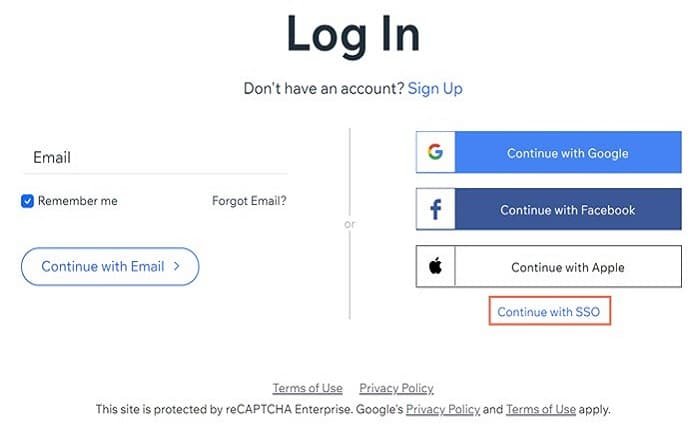SSO Login ID: Simplifying Access to Your Digital World

Introduction
In today’s digital age, we interact with numerous online services, each requiring its own unique login credentials. This can be overwhelming, leading to forgotten passwords, security risks, and a frustrating user experience. Single Sign-On (SSO) login ID offers a solution to this problem, providing a unified approach to accessing multiple online services with a single set of credentials.
What is SSO Login ID?
sso login is a centralized authentication system that allows users to access multiple applications and services with a single set of credentials. Once authenticated, users can seamlessly move between different platforms without having to re-enter their login information each time.
How Does SSO Login ID Work?
- User Authentication: When a user enters their SSO login ID and password, the authentication server verifies their credentials.
- Token Generation: Upon successful authentication, the server generates a security token, often in the form of a session cookie or a JSON Web Token (JWT).
- Service Access: The user’s browser sends the token to the desired service, which validates it and grants access to the user’s account.
Benefits of SSO Login ID
- Enhanced User Experience: SSO login ID streamlines the login process, saving users time and effort.
- Improved Security: By reducing the number of passwords to remember, SSO login ID minimizes the risk of password-related security breaches.
- Increased Productivity: SSO login ID enables users to quickly and easily access the services they need, boosting productivity.
- Simplified Password Management: With a single set of credentials, users can manage their passwords more effectively.
- Stronger Security Measures: SSO providers often implement robust security measures, such as multi-factor authentication and encryption, to protect user data.
Security Considerations for SSO Login ID
While SSO login ID offers numerous benefits, it’s essential to be aware of potential security risks:
- Single Point of Failure: If the SSO system is compromised, attackers could gain access to multiple services.
- Phishing Attacks: Phishing attacks targeting SSO credentials can be more effective, as they can potentially compromise multiple accounts.
- Data Breach Risk: A data breach at the SSO provider could expose sensitive user information.
To mitigate these risks, it’s crucial to choose a reputable SSO provider and implement strong security practices, such as:
- Strong Password Policies: Encourage users to create strong, unique passwords.
- Multi-Factor Authentication: Enable multi-factor authentication to add an extra layer of security.
- Regular Security Audits: Conduct regular security audits to identify and address vulnerabilities.
- User Education: Educate users about security best practices, such as avoiding phishing attacks and recognizing suspicious activity.
SSO Login ID in the Workplace
SSO login ID is widely used in enterprise environments to provide secure access to various applications and services. By implementing SSO, organizations can:
- Improve Employee Productivity: Streamline the login process and reduce IT support costs.
- Enhance Security: Centralize access control and minimize the risk of unauthorized access.
- Simplify Onboarding and Offboarding: Automate the process of provisioning and de-provisioning user accounts.
SSO Login ID for Consumers
SSO login ID is also increasingly being adopted by consumer-facing services. By using SSO, consumers can:
- Simplify Online Shopping: Access multiple online stores with a single login.
- Streamline Social Media: Manage multiple social media accounts with ease.
- Secure Online Banking: Access banking services with a single set of credentials.
Future of SSO Login ID
As technology continues to evolve, we can expect to see further advancements in SSO login ID. Emerging technologies, such as biometric authentication and blockchain, have the potential to revolutionize the way we authenticate ourselves online.
Conclusion
SSO login ID has become an indispensable tool for simplifying access to our digital world. By understanding the benefits, security implications, and best practices associated with SSO, individuals and organizations can leverage this technology to enhance security, improve productivity, and streamline their digital experiences.
FAQs
-
What is the difference between SSO and traditional login methods? SSO allows users to access multiple services with a single set of credentials, while traditional methods require separate logins for each service.
-
Is SSO login ID secure? SSO can be highly secure when implemented correctly. Strong password policies, multi-factor authentication, and regular security audits are essential to protect user data.
-
Can I use SSO login ID for personal accounts? Yes, many consumer-facing services, such as online shopping and social media platforms, offer SSO login ID.
-
How can I choose a reliable SSO provider? When selecting an SSO provider, consider factors such as security features, user experience, and customer support.
-
What are the future trends in SSO login ID? Future trends in SSO login ID include the adoption of biometric authentication, blockchain-based security, and seamless integration with emerging technologies.





